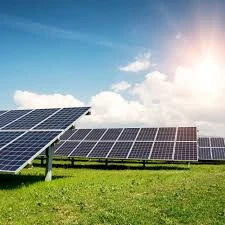Understanding Three-Phase Hybrid Inverter Technology and Its Applications in Renewable Energy Systems
Understanding Three-Phase Hybrid Inverters A Comprehensive Overview
In today’s world, the demand for sustainable energy solutions continues to rise, driving innovations in technology aimed at harnessing renewable energy sources effectively. One such innovation is the three-phase hybrid inverter, a vital component of renewable energy systems, particularly in solar power applications. This article delves into the functionalities, benefits, and considerations associated with three-phase hybrid inverters.
What is a Three-Phase Hybrid Inverter?
A three-phase hybrid inverter is an advanced electrical device that converts direct current (DC) into alternating current (AC) while simultaneously integrating multiple energy sources. Unlike standard inverters that convert energy from a single source, hybrid inverters can manage energy from different sources such as solar panels, batteries, and the electrical grid. This capability allows for enhanced energy efficiency, lowers electricity costs, and provides backup power during outages.
Key Features of Three-Phase Hybrid Inverters
1. Multi-Source Integration As mentioned, three-phase hybrid inverters can seamlessly coordinate energy from solar panels, batteries, and the grid. This multipurpose functionality makes them ideal for residential and commercial installations that utilize renewable energy.
2. Grid-Tied and Off-Grid Capabilities These inverters are designed to function in both grid-tied and off-grid configurations. In grid-tied mode, they supply excess power back to the grid, often resulting in credits or financial incentives. In off-grid mode, they rely on stored energy from batteries to power connected loads during outages or when solar generation is inadequate.
3. Advanced Control Features Three-phase hybrid inverters often come equipped with sophisticated management systems that optimize energy flow. These systems can monitor energy production and consumption in real-time, adjust to changing conditions, and prioritize sources of energy based on availability and cost-effectiveness.
4. Enhanced Efficiency With the ability to optimize solar energy production and storage usage, these inverters improve the overall efficiency of the energy system. They minimize energy losses during conversion processes, which is essential for maximizing the return on investment in renewable resources.
Benefits of Using Three-Phase Hybrid Inverters
- Cost Savings By harnessing solar energy and utilizing battery storage, users can significantly reduce their reliance on grid electricity, leading to lower energy bills. Additionally, selling excess power back to the grid can result in financial incentives for homeowners and businesses.
three phase hybrid inverter

- Energy Independence Three-phase hybrid inverters enable users to generate and use their own energy, reducing vulnerability to utility price fluctuations and outages
. This independence is particularly valuable for users in remote areas with unreliable power supply.- Environmental Impact Utilizing renewable energy sources helps reduce carbon footprints and promotes sustainable energy practices. By employing a three-phase hybrid inverter within a solar system, users actively contribute to the reduction of greenhouse gas emissions.
Considerations When Choosing a Three-Phase Hybrid Inverter
Despite their numerous advantages, there are several factors to consider when selecting a three-phase hybrid inverter
1. System Compatibility Ensure that the inverter is compatible with your existing or planned solar and battery systems.
2. Capacity and Sizing The inverter must be appropriately sized to handle the energy demands of the home or facility. Oversizing or undersizing can either lead to inefficiencies or inability to meet energy needs.
3. Installation and Maintenance Professional installation is crucial for optimal performance. Additionally, regular maintenance checks are necessary to ensure the longevity and efficiency of the system.
4. Cost While the initial investment in a three-phase hybrid inverter may be substantial, the long-term savings and potential for incentives can offset the upfront costs.
Conclusion
Three-phase hybrid inverters represent a critical advancement in the transition towards sustainable energy solutions. By efficiently converting and managing energy from various sources, these devices enhance energy independence, reduce costs, and contribute positively to environmental sustainability. As technology continues to evolve, the role of three-phase hybrid inverters will likely become even more prominent in the quest for an energy-efficient future.
-
String Solar Inverter: The High-Efficiency Solution for Smart Solar EnergyNewsJul.14,2025
-
Revolutionizing Rooftop Energy with the Power of the Micro Solar InverterNewsJul.14,2025
-
Power Independence with Smart Off Grid Solar Inverter SolutionsNewsJul.14,2025
-
On Grid Solar Inverter: Powering the Future with Smart Grid IntegrationNewsJul.14,2025
-
Monocrystalline Solar Panels: High-Efficiency Power for the Future of Clean EnergyNewsJul.14,2025
-
Bifacial Solar Panel: A Smarter Investment for Next-Generation Energy SystemsNewsJul.14,2025







